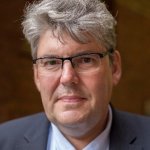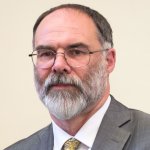12:30pm - 1:30pm GMT
Wednesday 7 December 2022
Seventh RECLAIM webinar
Free
This event has passed
Please register your place so you can attend the webinar on Zoom.
Agenda
| Time | Details |
|---|---|
| 12.30pm - 12:35pm | Welcome Professor Prashant Kumar and RECLAIM Team |
| 12.35pm - 12:55pm | What role for blue/green infrastructure in Net Zero? Professor Paul Monks, Chief Scientific Adviser – Department for Business, Energy and Industrial Strategy |
| 12.55pm - 1:15pm | Pervasive green infrastructure corridors – Routes to more sustainable, resilient and liveable cities Professor Christopher Rogers, Director, Centre for Infrastructure Urban Systems, University of Birmingham |
| 1:15pm - 1:25pm | Q&A |
| 1.25pm - 1:30pm | Announcement of next webinar and close |
Speakers

Professor Paul Monks
Chief Scientific Adviser – Department for Business, Energy and Industrial Strategy
Biography
Professor Paul Monks is the Chief Scientific Adviser (CSA) for the Department for Business, Energy and Industrial Strategy (BEIS). As BEIS CSA, he delivers independent and impartial scientific advice to ministers and policy makers across the BEIS portfolio.
Paul also works closely with the government chief scientific adviser, other departmental CSAs, and BEIS chief economist, to strengthen the links within and across departments, encouraging effective engagement and knowledge sharing, and to support delivery of a robust evidence base to underpin BEIS policy decisions.
Prior to joining the department, Paul was pro-vice chancellor and head of college of science and engineering at the University of Leicester, where he remains a professor in atmospheric chemistry and Earth observation science.

Professor Christopher Rogers
Director, Centre for Infrastructure Urban Systems, University of Birmingham
Biography
In his quest to make effective interventions in our cities’ infrastructure systems to support the move to a more sustainable, resilient and liveable future, Chris has spent more than 20 years developing a suite of methodologies that enable decision-makers to make more informed decisions. These include the use of extreme-yet-plausible future scenarios, city performance assessment (he led Liveable Cities, a £6.3m programme grant), and the creation of novel business models.
A member of the Lead Expert Group of the Foresight Future of Cities project (2013-15), he is a founder member of the UK Collaboratorium for Research on Infrastructure and Cities (UKCRIC).
